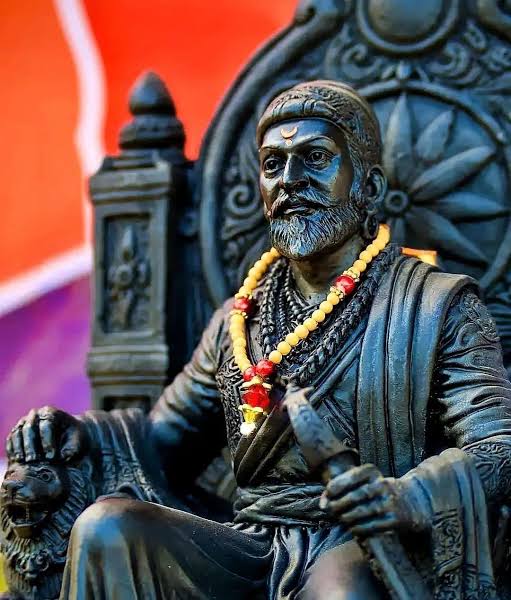Shivaji Maharaj: The Legendary Maratha Warrior
Shivaji Maharaj was a revered 17th-century Maratha ruler who established the Maratha Empire and is renowned for his strategic military leadership and administrative prowess
Early Life and Upbringing
Childhood
Born in 1630, Shivaji spent his formative years in the Shivneri Fort, where he received a rigorous education in military tactics, diplomacy, and statecraft.
Early Exploits
Even as a young man, Shivaji demonstrated his leadership abilities, successfully raiding and capturing nearby forts, laying the foundations for his future empire.
Family Influence
Shivaji’s mother, Jijabai, and his father, Shahaji Bhonsle, instilled in him a strong sense of Maratha pride and a commitment to defending his people.
Rise to Power and Establishment of the Maratha Empire
Consolidating Control
Shivaji strategically expanded his influence, forging alliances and subduing rival chieftains to establish a strong Maratha presence in the region.
Guerrilla Tactics
Shivaji’s adept use of guerrilla warfare and his ability to outmaneuver larger Mughal armies were key to his success in building the Maratha Empire.
Administrative Reforms
Shivaji implemented administrative reforms, including a centralized revenue system and a well-organized military, to strengthen the foundations of his kingdom..
Military Strategies and Conquests
Surprise Attacks
Shivaji’s lightning-fast raids and ambushes caught his opponents off guard, allowing him to seize strategic locations and weaken the Mughal hold in the region.
Adaptable Tactics
Shivaji’s forces were highly mobile and adept at navigating the rugged terrain, enabling them to outmaneuver and outflank larger Mughal armies.
Defensive Fortifications
Shivaji built a network of strong forts and outposts that provided secure bases of operation and effective deterrents against Mughal incursions.
Governance and Administration
Centralized Government
Shivaji established a well-organized administrative system, with a cabinet of ministers, a standing army, and a reliable revenue collection mechanism.
Religious Tolerance
Shivaji’s inclusive policies towards various religious communities, including Hindus and Muslims, contributed to the stability and prosperity of his kingdom..
Judicial Reforms
Shivaji introduced a fair and efficient judicial system, ensuring the impartial administration of justice and the protection of his subjects..
Infrastructure Development
Shivaji invested in the construction of roads, bridges, and other infrastructure projects to facilitate trade and commerce within his empire.
Relationship with the Mughal Empire
1. Shivaji's Conflicts with the Mughals
Shivaji’s rise to power and the expansion of the Maratha Empire brought him into conflict with the Mughal Empire, which sought to exert its dominance over the region. This led to a series of battles and diplomatic maneuverings between Shivaji and the Mughal rulers, including Aurangzeb.
2. Shivaji's Tactical Brilliance
Shivaji’s military strategies and guerrilla tactics allowed him to successfully resist Mughal attempts to subjugate the Maratha territories. His ability to outmaneuver and outfight the larger Mughal forces was a testament to his strategic acumen.
3. The Treaty of Purandar
In 1665, Shivaji and the Mughal Emperor Aurangzeb reached a treaty, known as the Treaty of Purandar, which temporarily resolved the tensions between the two powers and allowed Shivaji to maintain his autonomy.
Legacy and Impact on Indian History
Enduring Maratha Empire
Shivaji’s establishment of the Maratha Empire laid the foundation for its continued growth and dominance in the Indian subcontinent for the next century.
Inspiration for Nationalism
Shivaji’s heroic resistance against the Mughals and his championing of Maratha pride made him a revered figure and a symbol of Indian nationalism
Cultural Preservation
Shivaji’s patronage of the arts, literature, and cultural traditions helped to preserve and promote the rich heritage of the Maratha people
Shivaji Maharaj's Contributions to Indian Culture and Heritage
Military Prowess
Shivaji’s innovative military strategies and battlefield exploits have been celebrated in numerous historical accounts and folk tales.
Architectural Legacy
Shivaji commissioned the construction of numerous forts, palaces, and other architectural marvels that showcased the Maratha artistic and engineering prowess.
Literary Patronage
Shivaji encouraged the development of Marathi literature, poetry, and other art forms, which flourished under his patronage and contributed to the cultural richness of the Maratha Empire.
Philanthropic Efforts
Shivaji was known for his charitable acts, including the establishment of temples, schools, and other public institutions that benefited his subjects.

